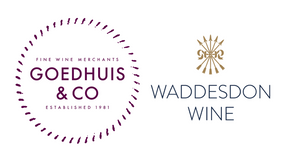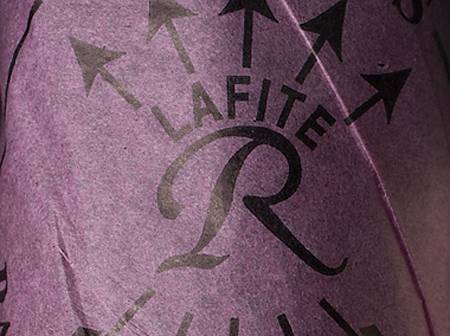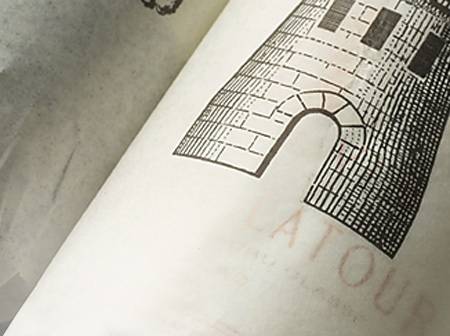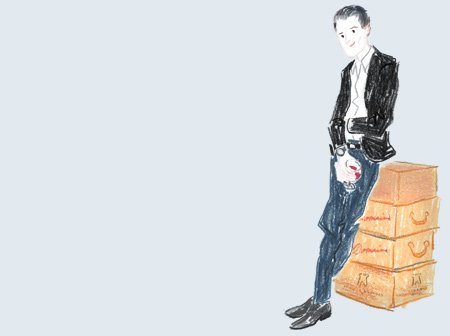- Colour Red
- Producer Château Palmer
- Region Margaux
- Drinking 2027 - 2045
- Case size 6x75cl
- Available Now
2018 - Ch Palmer 3ème Cru Margaux - 6x75cl
- Colour Red
- Producer Château Palmer
- Region Margaux
- Drinking 2027 - 2045
- Case size 6x75cl
- Available Now
Select pricing type
Need help? Call +44 (0)20 7793 7900 or email wine@goedhuiswaddesdon.com.
-
Goedhuis, April 2019, Score: 94-96
All the talk at this estate was of the tiny yields, just 11 hl/ha, and that they made just one wine this year, no Alter Ego at all. Despite the difficulties they experienced in the vineyard, this is a hugely successful wine. With masses of dark summer fruits, this is a very structured wine, less voluptuous than some vintages. A strikingly intense wine, with quite pronounced tannins, but the deliciously sweet black fruit is the lasting sensation, convincing that there really is enough fruit to cope with the pronounced degree of masculinity underneath.
-
Neal Martin, March 2021, Score: 100
The 2018 Palmer is a legend in the making. I had an inkling out of barrel, but such was its intensity that I wanted to assess it in bottle before I felt confident in saying so, because this could have gone either way. It storms from the glass with black fruit and floral scents, crushed violet and incense that knock your senses sideways while retaining brilliant delineation and focus. The palate is not quite as bold and brassy as when I tasted it from barrel, though I can vouchsafe that among over 20 vintages of Palmer that I have tasted at this stage, this is easily the most extroverted and powerful, displaying a kind of millefeuille of intense black fruit counterpoised by a razor-sharp line of acidity. This audacious Palmer was still revving its engines 48 hours after opening. There will never be another Palmer like this, sui generis. It was a massive risk. But by throwing caution to the wind, something extraordinary was born. Drink 2030-2070
-
Antonio Galloni, May 2019, Score: 95-98
The 2018 Palmer is a freak of nature from yields of just 11 hectoliters per hectare harvested over an entire month by CEO Thomas Duroux and his team. Rich, unctuous and flamboyant in its ripeness, the 2018 possesses off the charts intensity from start to finish. Blackberry jam, espresso, crème de cassis, licorice, menthol, lavender and cloves develop in a palate-staining, hedonistic Palmer that oozes with personality. This extravagantly ripe Margaux won't be for everyone, but it is a stunning, head-spinning wine that may, in time, very well join the ranks of the truly epic Palmers. A wine of pure and total pleasure, the 2018 is nearly impossible to resist. The blend is 53% Cabernet Sauvignon, 40% Merlot and 7% Petit Verdot. In 2018, Palmer bottled just their Grand Vin and no Alter Ego.
-
Wine Advocate, April 2019, Score: 97-99
The 2018 Palmer is composed of 53% Cabernet Sauvignon, 40% Merlot and 7% Petit Verdot. Grapes were harvested September 13 to October 15, and the wine has a 3.83 pH and 14.3% alcohol. Very deep purple-black in color, the nose is a little reticent to begin, but with coaxing, it slowly emerges to show fragrant violets, underbrush, mossy bark and iron ore with exponentially growing notions of crème de cassis, Black Forest cake, plum preserves, hoisin, Christmas cake and red roses with wafts of dusty earth, Indian spices and cracked black pepper. Full-bodied, concentrated and downright powerful in the mouth, it has a solid structure of firm, wonderfully plush tannins and masses of fragrant accents, finishing very long and very spicy. By the time I finished tasting this, the nose had exploded in this fragrant bomb of fruit, earth and floral notions. This is one of those 2018 wines that has a beguiling brightness that comes from the many floral, spice and mineral accents among all that rich fruit. WOW!
-
James Suckling, April 2019, Score: 94-95
It is the essence of cabernet fruit with density that is so thick that it has the texture of grape puree. Full body and melted tannins that give the wine a sense of velvet. Very soft and juicy. With air, it goes to bright, crushed black currants. Tar. Fresh tannins give it energy. I have never tasted anything like this in all my 38 years as a wine critic in Bordeaux. From tiny berries of cabernet sauvignon (53 per cent), 40 per cent merlot and seven per cent petit verdot.
-
Decanter, April 2019, Score: 99
Possibly the most talked about estate in the vintage, with its mildew-induced 11hl/ha yields making waves all the way back at harvest time. They made it through though, and have made an exceptional wine that will clearly be discussed and enjoyed for years to come. There's no denying that the yields have had an impact - even in the colour you see a rich, velvety density with the violet edging that suggests a good pH (it's 3.83, so a touch higher than usual). There is a stunning sweetness to the cassis and bilberry fruits, and it retains the finesse and floral aromatics of Palmer even with the concentration, complexity and depth on show here. It also has the signature of the vintage, and despite the volume of tannins it feels silky and seductive, and you wonder if it will close down at all. This certainly has a long life ahead of it. Sadly there is no Alter Ego in 2018, for the first time since it was created in 1998, with the production of the grand vin down by about 50% on a normal year. Harvest ran from 13 September to 15 October, and 90% of production went into the grand vin due to the low yields. No sulphur was added to the fruit until after malo, and it is aged in 70% new oak, already barely discernible. Thomas Duroux said, by the way, that if mildew pressure happened again to this extent, he would treat despite his strong commitment to biodynamics. Let's hope it doesn't come to that. Drinking Window 2028 - 2044
-
Matthew Jukes, April 2019, Score: 19.5+
There was no Alter Ego made in 2018 and with only 11hl/ha yields, winemaker Thomas Duroux was lucky that he had any fruit at all to make his beloved Grand Vin. Thomas explained that it was his job to keep the Palmer DNA in this wine, at all costs. It therefore took his team a month to harvest just 60 hl of wine – they were most likely picking berry by berry! It certainly tastes like this wine was made using kid gloves though because it is every inch a remarkable creation. By trying to avoid concentration but to remain relaxed enough to harvest every single vine at the right time Palmer have made a triumphant wine in 2018. Had there been any pressure to rush out and pick this would not have been possible, but this vintage is unlike any other. Winemaking was all about following the pointers of the vintage while trying to maintain some semblance of control. What a revelation this wine is. It is super-fresh on the nose, palate and finish. There is amazing buoyancy of fruit with an eye-popping crunch of acidity underneath the extraordinary papal purple colour. Mega-precise, focussed and all-enveloping this is one of the most fascinating and mesmerising wines of the year. Thomas thinks it is a milestone wine at Palmer as he has never made any like this before. Like some of the other great vintages from this Château it was born of accident if you like. I simply allowed the ridiculously decadent fruit to wash over my palate while the Asian spices, liquorice root, violet and espresso details tweaked the synapses in my brain. The finish was still going half an hour after I left the property. This is a sublime wine.
-
Wine Spectator, April 2019, Score: 97-100
The level of glycerine sets this apart, giving the cascade of plum, currant, blackberry and black cherry fruit extra oomph, while seeming to heighten the purity at the same time. Beautiful violet, incense and juniper notes flash in the background. This is packed with iron-laced grip, but remains seamless and extremely long. I suspect this will be one of the most talked-about wines of the vintage.
-
Julia Harding, April 2019, Score: 18.5
Black with barely a purple rim. Intense, concentrated cassis and blackberry, super-ripe but absolutely not overripe, a little bit of alcohol on the nose, lightly floral even with all this concentration. Very dark, almost a little tarry, black olive. Dark and rocky. On the palate, incredible concentration and density but with no thickness or astringency. So dense but so clean-lined and precise. Tannins are dry and compact but smooth and there’s an amazing freshness that seems to come from the compact tannins. And your mouth feels clean on the finish. So moreish even though at the moment you would have to take small sips. Great finesse to the texture even in such a big wine. Dark, dark and savoury on the finish. No sweetness even though the fruit is pure and ripe. Drink 2028-2045
Producer
Château Palmer
Château Palmer has many followers. Indeed in certain vintages it even rivals Château Margaux itself. Its 1961 was one of the most compelling wines of the vintage outperforming most first growths. Many deem this château far more noble than its original classified third growth status which can be confirmed by its price.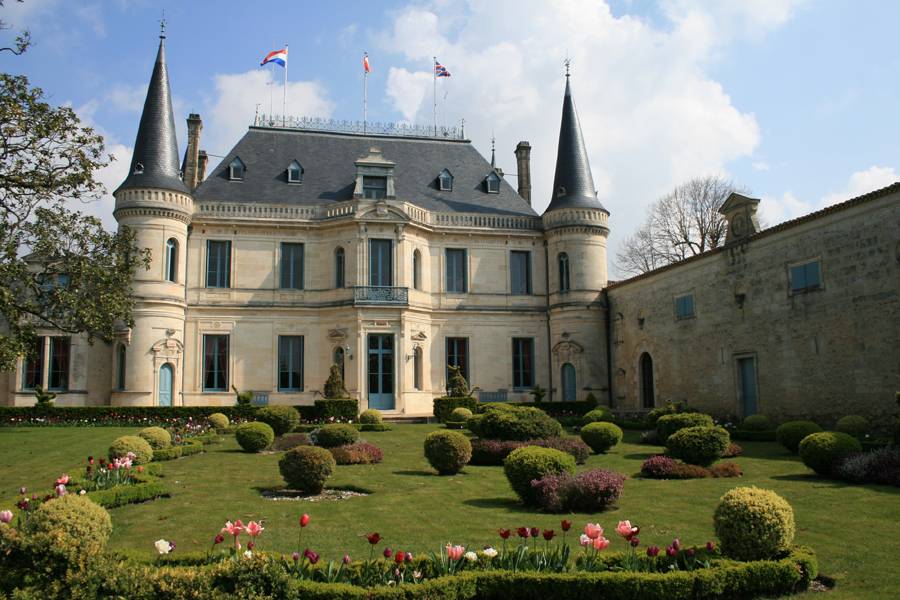
Region
Margaux
Plump, silky and seductive are the words often used to describe wines from Margaux. Because of their style, they tend to be user friendly and more approachable when young. This is in part due to its terroir which is comprised of the thinnest soil as well as the highest proportion of chunky gravel in all of the Médoc. It drains well but also is it more susceptible to vintage variation. Margaux wines tend to have the highest proportions of Merlot within the core of the Médoc further adding to their ample roundness and openness. Margaux is home to the largest number of classified growths including its namesake first growth, Château Margaux, as well as third growths, Palmer and d'Issan.
